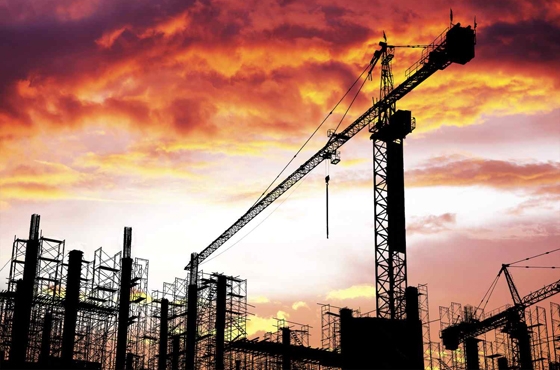The GCC region is investing more than $210bn in major construction projects, mostly in preparations for the FIFA World Cup 2022 in Qatar and the World Expo 2020 in Dubai, said HE the Minister of Energy and Industry, Dr Mohamed bin Saleh al-Sada. This also includes more than $120bn for transportation construction such as roads and bridges.
Massive infrastructure projects, specifically those related to Qatar's hosting of the World Cup 2022 will drive the growth of the region's cement industry, al-Sada said.
"The massive infrastructure development planned for the legacy sporting event of the 2022 FIFA World Cup is expected to position the State of Qatar as the powerhouse that will drive the growth of the region's cement industry, as well as the construction industry, in general," the minister said.
"In fact, the construction industry in the Middle East, particularly the GCC (Gulf Cooperation Council), is expected to witness the fastest growth in the period between 2016 and 2020, thanks to the huge infrastructure investment by Qatar, the UAE, Saudi Arabia, among other countries and two major global events to be hosted in the coming decades, Dubai's Expo 2020 and the FIFA World Cup in 2022," al-Sada said.
Citing a report from the Global Construction Outlook 2020, al-Sada said rapid construction activities "would constitute the driving force" that would boost the share of emerging markets to 52.8% of the global output in 2015 and to 56% by 2020.
The report also expects construction industries in emerging markets to expand to an average of 5.3% annually between 2016 and 2020, compared to only 2.2% a year expected for advanced economies during the same period, the Minister further said.
"The global construction industry has regained growth momentum, with the pace of expansion accelerating from an annual average of 2.7% a year in real terms in 2011-2013 to 3.1% in 2014. Timetric's CIC forecasts a further rise to 3.8% in 2015, and then an average annual increase of 3.9% over 2016-2020," the report said.
It added, "The construction industries in the Middle East and Africa region are predicted to be the fastest growing in 2016-2020, overtaking the Asia-Pacific region. This reflects the huge investment in infrastructure and buildings that is taking place in Qatar, Saudi Arabia and the UAE."
Al-Sada also said the staging of the two-day cement forum comes in the wake of the recent drop in oil prices, prompting many global industries and businesses to realign their finances.
"However, leaders in the cement industry expect a favorable environment for their businesses, varying from neutral to positive. But the price of oil is not the only factor to influence the development of this industry.
"Cheaper oil has added pressure on foreign exchange markets, which has impacted both exporters and importers. Fiscal policy is certainly another factor to consider during such times as countries benefiting from cheaper oil decide whether to increase expenditure or to give priority to repaying debts," he added.
Gulf Times
10 March






















































